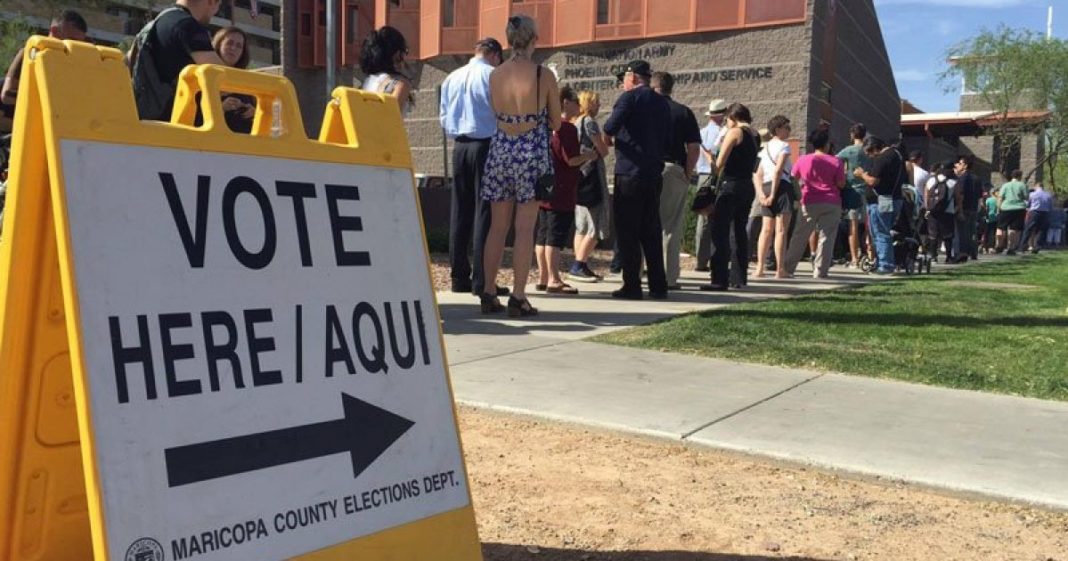An investigation has uncovered that tens of thousands of voters in Georgia participated in the 2020 election using ineligible ballots. This revelation came to light during an examination of the state’s voter rolls. Concerns have been raised for quite some time as the voter rolls have never been cross-checked with any other data.
In every state, there are active voters who are older than Abraham Lincoln, yet they continue to vote and register in recent years.
Fractal, in collaboration with the Georgia election integrity team, has been working for months to develop an integrated Fractal database. This database comprises all the available Georgia election records for the year 2020.
As reported by the Gateway Pundit, these records were compared against multiple other databases to identify addresses that were ineligible but still cast votes in 2020. The county governments in Georgia generously provided comprehensive property tax information for every address in the major counties of the state.
For the first time in history, the voter rolls were reconciled in real-time, using a phone, against property tax descriptions. Various databases, including death records, U.S. Postal change of address records, known address records, 911 address descriptions, and others, were compared. The system was able to process the data at an impressive rate of 200 million transactions per second. The results clearly indicate that ballots were cast from locations where individuals were deceased or had moved to ineligible addresses.
A film has been released by Fractal, replacing a confusing report, to provide a comprehensive account of its findings. The video reveals a shocking revelation regarding the inclusion of ineligible addresses in the 2020 presidential election’s vote count. This video can now be accessed by anyone through their mobile devices, offering real-time information.
Fractal aims to showcase the significant inaccuracies present in Georgia’s voter rolls through this concise yet impactful video. It showcases a substantial number of ineligible addresses that participated in the voting process in 2020. These addresses include hotels, UPS boxes, RV parks, and other temporary locations, even though years had passed since their registration. The lingering question remains: who were the individuals responsible for casting these ballots?
Georgia Video 1 showcases the voter registrations in the state, highlighting the presence of numerous errors in official voter record addresses, including incorrect Zip codes and other anomalies. It raises the question of whether mail-in ballots were collected at the Post Office for these individuals. The Georgia Fractal system, an impressive achievement, stands as the largest integrated state election database ever constructed. Currently, it houses hundreds of millions of records. Through time series analysis, the database compares voter rolls for 8 election dates, providing insights into voter movement. The team behind this system successfully merged the 2020 cast ballot database with the 2020 voter database, effectively recreating the digital landscape of the 2020 elections.
With a simple click, one can identify voters who participated in the 2020 elections, even if their names were not initially on the voter roll. Moreover, the system possesses the capability to detect individuals voting from temporary addresses such as churches, RV parks, hotels, or shelters. By employing time series analysis and monitoring changes to voter rolls on a weekly or monthly basis, the system can accurately identify any instances of illegal aliens being registered.
The 2024 Georgia Undeliverable Ballot Database is now built upon the Georgia Fractal system, marking a significant milestone. This database serves as the primary reference for identifying locations where ballots are expected to be sent in 2024 but are unlikely to reach eligible voters. The Georgia Fractal system continuously updates the database with new information on a weekly basis.
Currently, the team is commencing an analysis of modifications made by state officials to the 2020 data, which occurred long after the election. This analysis aims to determine the potential impact of these changes on certain ongoing news stories.
Merely cleansing the voter rolls will not suffice for the upcoming 2024 elections. The Fractal system reveals a concerning pattern across various states, where malicious individuals reintroduce these phantom voters back onto the voter rolls.
Fortunately, the Undeliverable Ballot Database prevents the distribution of these phantom ballots in the first place, mitigating any potential harm before it occurs.






